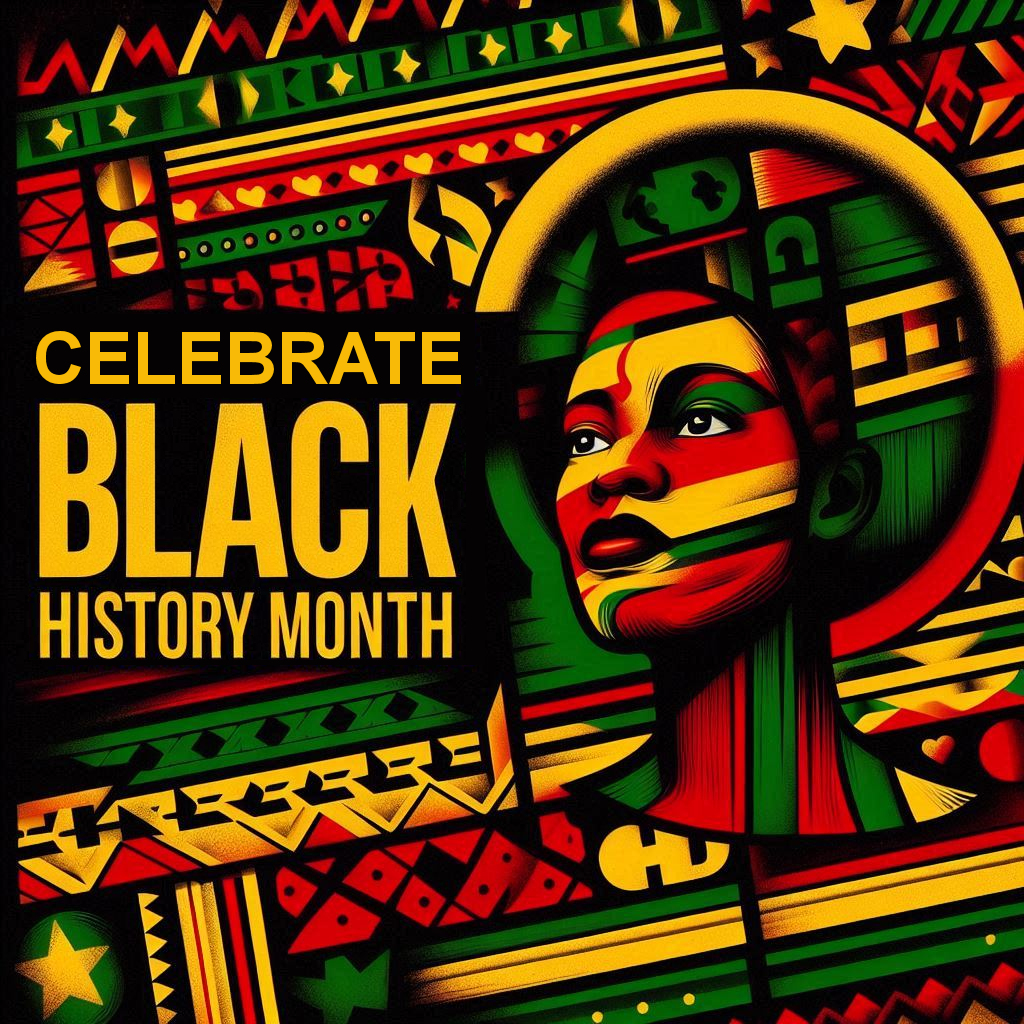Celebrating Black LGBTQ History
February is Black History Month
Jump to the Article

Black LGBTQ+ people have made significant contributions to American culture, particularly in the arts, literature, and social justice movements. Their unique experiences and perspectives have enriched the cultural landscape, challenging societal norms and expanding the understanding of identity and expression. From the Harlem Renaissance to the modern day, Black LGBTQ+ individuals have played a vital role in shaping American culture, leaving a lasting legacy that continues to inspire and influence generations. February is Black History Month in the United States, but there are plenty of reasons to honor and celebrate Black History throughout each year.
It's difficult to give a definitive "best" list, as resources and websites evolve. However, here are some starting points for exploring Black LGBTQ+ history and culture, combining established organizations, archives, and newer initiatives. Remember to explore beyond this list as well!
Organizations and Archives:
- The National Museum of African American History and Culture (NMAAHC): Part of the Smithsonian, they have exhibits and online resources related to Black LGBTQ+ history. Search their site for specific topics.
- The Schomburg Center for Research in Black Culture: A branch of the New York Public Library, they hold extensive archives related to Black history and culture, including significant materials on Black LGBTQ+ individuals and communities.
- GLAAD (Gay & Lesbian Alliance Against Defamation): While not exclusively focused on Black LGBTQ+ issues, GLAAD often features stories and resources related to the intersection of race and sexual orientation/gender identity.
- The LGBT Community Center (NYC): Often has resources and programming related to Black LGBTQ+ history and current events. (Many local LGBTQ+ centers will have similar, but regionally focused resources)
- ONE Archives at the USC Libraries: Holds a wealth of LGBTQ+ historical materials, including some related to Black LGBTQ+ individuals.
Online Resources and Projects:
- BlackPast.org: An online encyclopedia of African American history, with entries on many Black LGBTQ+ figures and events.
- The Lavender Effect: Dedicated to preserving LGBTQ+ history, they may have resources related to Black LGBTQ+ history. (Check their archives and projects)
- Digital Transgender Archive: While focused on trans history, it may contain materials relevant to Black trans individuals.
- Black History Month - PFLAG Every year in February, we honor Black History Month, which was founded by The Association for the Study of African American Life.
- African American LGBTQ Resources at the University of Arizona The National Black Justice Coalition is a civil rights organization dedicated to empowering Black lesbian, gay, bisexual, and transgender people.
Focusing on organizations actively supporting Black LGBTQ+ individuals is crucial. It's important to note that the landscape of these organizations can shift, so it's always good to do current research. Here are some more resources:
National Organizations (US-focused):
- National Black Justice Coalition (NBJC): A leading civil rights organization dedicated to the empowerment of Black LGBTQ+ people. They focus on policy, advocacy, and leadership development.
- Center for Black Equity: Works to promote social and economic equity for Black LGBTQ+ communities through various programs and initiatives.
- Black AIDS Institute: Addresses the disproportionate impact of HIV/AIDS on Black communities, including Black LGBTQ+ individuals.
- Transgender Law Center: While not exclusively focused on Black trans people, they often work on issues impacting the intersection of race and gender identity, and have resources and legal support.
Organizations with a Strong Focus on Intersectionality:
- The Movement for Black Lives (M4BL): A broad coalition of Black organizations working on various issues, including those impacting Black LGBTQ+ individuals. Their website often highlights specific initiatives and groups.
Local/Regional Organizations:
It's essential to look for organizations in your specific area. Local groups often provide direct services and community support. Here's how to find them:
- Local LGBTQ+ Centers: Many LGBTQ+ centers have specific programs or support groups for Black LGBTQ+ individuals. Check their websites or contact them directly.
- Search for "[Your City/Region] Black LGBTQ+ organizations": This can help you find smaller, grassroots groups that may not have a large national presence.
- Check with local universities and colleges: They may have LGBTQ+ resource centers or student groups that serve Black LGBTQ+ students.
Important Considerations:
- Direct Services: Many organizations provide direct services like mental health support, legal aid, housing assistance, and community building activities. Look for organizations that meet the specific needs of the people they serve.
- Advocacy and Policy: Other organizations focus on advocacy and policy change to address systemic issues affecting Black LGBTQ+ people.
- Volunteer Opportunities: If you're looking to get involved, many of these organizations rely on volunteers.
- Intersectionality: Remember that Black LGBTQ+ experiences are shaped by the intersection of race, sexual orientation, gender identity, and other factors. Look for resources that address these complexities.
- Ongoing Research: The field of Black LGBTQ+ history is constantly evolving. New research and resources are continually being developed. Stay curious and seek out new information.
- Community-Based Archives: Many local and regional LGBTQ+ organizations and historical societies may hold valuable materials related to Black LGBTQ+ history in their specific areas. Reach out to them directly.
These suggestions are not exhaustive, but they provide a starting point for finding organizations that are making a real difference in the lives of Black LGBTQ+ people. Don't be afraid to explore!
